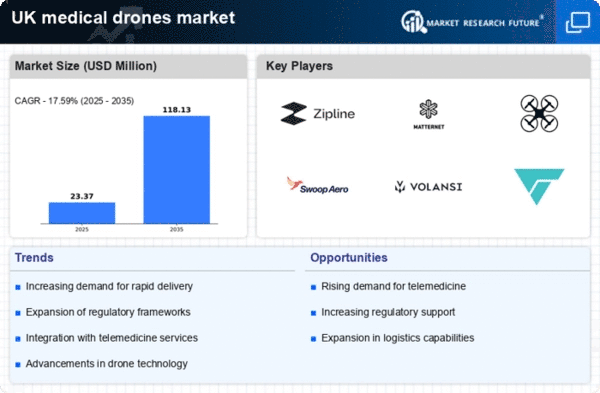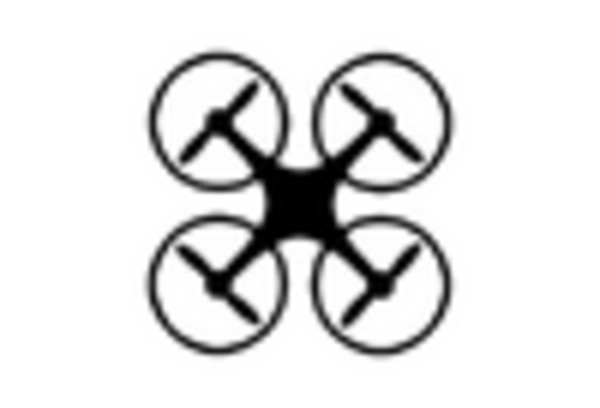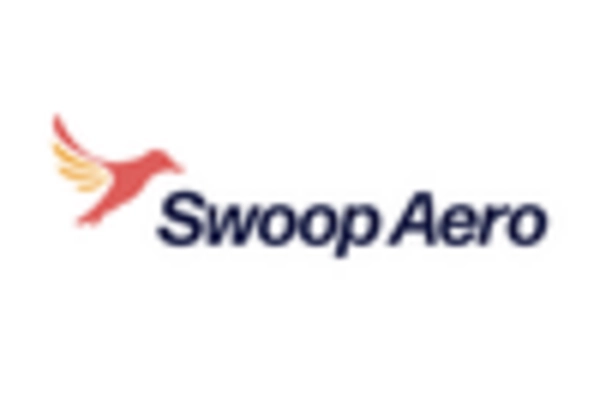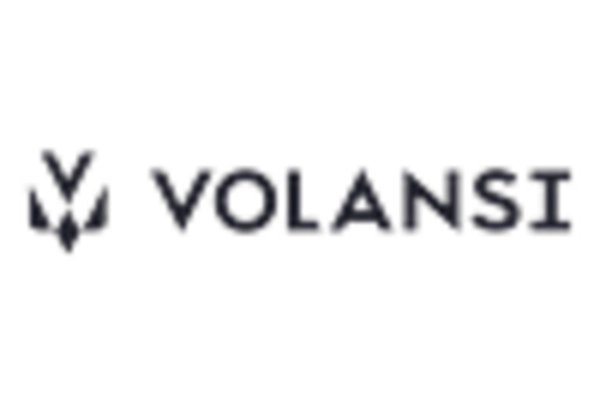Supportive Regulatory Framework
A supportive regulatory framework is emerging as a crucial driver for the medical drones market. The UK Civil Aviation Authority (CAA) has established guidelines that facilitate the integration of drones into the healthcare system. These regulations aim to ensure safety while promoting innovation. The CAA's recent initiatives, such as the Drone Registration Scheme, are designed to streamline the approval process for medical drone operations. This regulatory support is expected to encourage more healthcare providers to adopt drone technology, thereby expanding the medical drones market. As regulations evolve to accommodate new technologies, the market is likely to witness increased participation from various stakeholders.
Rising Public Awareness and Acceptance
Rising public awareness and acceptance of drone technology are influencing the medical drones market positively. As the general population becomes more familiar with the benefits of drones, including their potential to save lives through rapid medical deliveries, acceptance is likely to increase. Public demonstrations and pilot programs in the UK have shown promising results, leading to greater trust in drone operations. Surveys indicate that approximately 65% of the population supports the use of drones for medical deliveries, suggesting a favorable environment for market growth. This increasing acceptance may encourage healthcare providers to adopt drone technology, further propelling the medical drones market.
Growing Demand for Rapid Medical Delivery
The medical drones market is significantly influenced by the increasing demand for rapid medical delivery services. In the UK, healthcare providers are under pressure to deliver medical supplies, including blood, vaccines, and medications, swiftly to various locations. Drones offer a solution by reducing delivery times, which can be critical in emergencies. Recent studies indicate that drone deliveries can reduce transport times by up to 70%, making them an attractive option for healthcare logistics. This growing demand for speed and efficiency is likely to propel the medical drones market forward, as stakeholders seek innovative solutions to enhance patient care and operational efficiency.
Increased Investment in Healthcare Logistics
Investment in healthcare logistics is a significant driver for the medical drones market. The UK government and private sector are increasingly recognizing the potential of drones to enhance supply chain efficiency. Recent reports suggest that investments in healthcare logistics, including drone technology, could reach £500 million by 2026. This influx of capital is likely to foster innovation and improve infrastructure, making it easier for healthcare providers to implement drone solutions. As logistics become more streamlined, the medical drones market is expected to grow, driven by the need for efficient and cost-effective delivery methods in the healthcare sector.
Technological Advancements in Drone Capabilities
The medical drones market is experiencing a surge in technological advancements that enhance drone capabilities. Innovations in battery life, payload capacity, and navigation systems are pivotal. For instance, drones equipped with advanced sensors and AI can autonomously navigate complex urban environments, ensuring timely delivery of medical supplies. The UK government has invested approximately £10 million in research and development for drone technology, indicating a strong commitment to integrating these systems into healthcare. This investment is expected to bolster the medical drones market, as improved technology can lead to more efficient operations and increased trust among healthcare providers. As a result, the medical drones market is likely to expand, driven by the demand for reliable and efficient delivery systems in the healthcare sector.

















